The Biden administration misrepresents our involvement in Afghanistan and what it means for the United States to unconditionally withdraw. The United States must reckon with the role it plays in the conflict that will continue even after its departure, writes Madiha Afzal. This article first appeared in the Washington Post.
It appears that President Biden’s announced withdrawal from Afghanistan is proceeding ahead of schedule, with all U.S. troops set to depart by mid-July, and NATO and allied forces keeping to that schedule as well. But if the president wants to tie a neat bow on U.S. involvement in Afghanistan — saying, as he has, that the logic for the war ended once al-Qaida was gutted and Osama bin Laden killed — it reveals a stunning lack of introspection about the United States’ role in the conflict that will continue in Afghanistan.
It is true that the president had no good choice on Afghanistan, and that he inherited a bad deal from his predecessor. But in announcing an unconditional withdrawal, he made the situation worse by throwing out the minimal conditions U.S. Special Envoy Zalmay Khalilzad had negotiated under the Trump administration.
The refrain from the Biden administration is that the United States is not abandoning Afghanistan, that it will aim to do right by Afghan women and girls, and that it will try to nudge the Taliban and Kabul toward a peace deal using a diplomatic tool kit. But the narrative ignores much of the reality on the ground. On May 8, at least 90 people, many of them schoolgirls, were killed in a horrific terrorist attack outside a high school in Kabul. The Taliban denied responsibility but has increased attacks across Afghanistan. The fighting between the Afghan security forces and the Taliban has intensified in various cities; in other district centers, Afghan forces have surrendered to the Taliban.
Meanwhile, the Taliban has repeatedly refused to come to the administration’s proposed Istanbul conference on Afghanistan — and now, after intense efforts, says it’ll only attend if the conference is short, low-level, and doesn’t involve decisionmaking on critical issues. They’ve made a farce of the whole process, an outcome many of us predicted given the unconditional withdrawal. Afghanistan almost certainly seems headed for greater violence, with embassies rapidly reducing their presence or shutting down altogether due to security concerns, as the Australian embassy recently announced. One can imagine how tone-deaf a “mission accomplished” narrative sounds to Afghans living this reality.
The U.S. choice came with costs attached to each decision. With staying, the cost was potential U.S. troop casualties and a fear that things would not change on the ground. With leaving comes the cost of a deeper conflict in Afghanistan and a backsliding of progress made there over the past two decades. In many ways, the costs of staying seem shorter-term and borne by the United States, while the costs of leaving will be predominantly borne by Afghans over a longer time horizon. Yet, even if those costs seem remote now, history tells us that they will be blamed on the United States.
Biden, as the Economist put it, seems to have “little time for a losing cause.” His decision also reflects his administration’s foreign policy for the American middle-class paradigm, which focuses on domestic considerations over international ones (and is this so different from Trump’s “America First”?). The irony, though, is that the American middle class largely doesn’t care about Afghanistan — their ambivalence gave way to support for this decision once it was announced, but it wouldn’t be hard to visualize the public approving of a scenario that kept a couple thousand troops there for a while longer.
What’s perhaps most disturbing is the narrative the president has presented along with the rationale for withdrawal: that we went to Afghanistan to defeat al-Qaida after 9/11, that mission creep led us to stay on too long and, therefore, it is time to get out. This takes an incomplete view of U.S. agency in the war in Afghanistan. The narrative implies that the civil conflict in Afghanistan today did not originate with us — that this more than 40-year war began with the Soviet invasion of Afghanistan in 1979, preceded us, and will follow our departure.
The fact of the matter is that, by beginning the campaign in Afghanistan in 2001 and overthrowing the Taliban, who were then engaged in their draconian rule, and installing a new government, we began a new phase of the Afghan conflict — one that pitted the Kabul government and the United States against the Taliban insurgency. The Afghan people did not have a say in the matter. That we are leaving Afghan women, children, and youth better off in many ways after 20 years is due to us, and we should be proud of that. But that we are leaving them mired in a bloody conflict is also due to us, because we could not hold off the Taliban insurgency, and we must reckon publicly with that.
If this is an administration that takes U.S. leadership seriously — and I think it is — it should do away with the simple narrative it has presented thus far, and reckon with our role and responsibility in this latest iteration of the Afghan conflict. Far from making us appear weak, such honesty would garner the United States respect and credibility on the world stage.
The Brookings Institution is committed to quality, independence, and impact.
We are supported by a diverse array of funders. In line with our values and policies, each Brookings publication represents the sole views of its author(s).


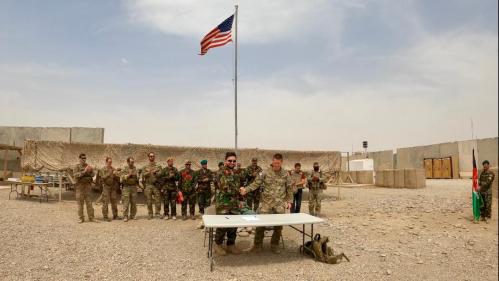
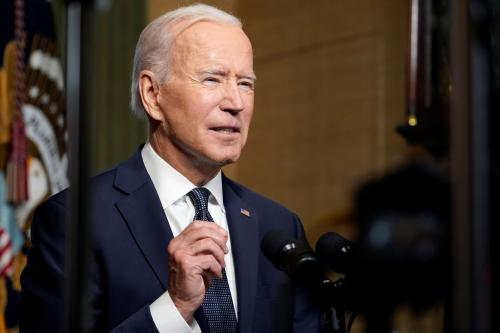


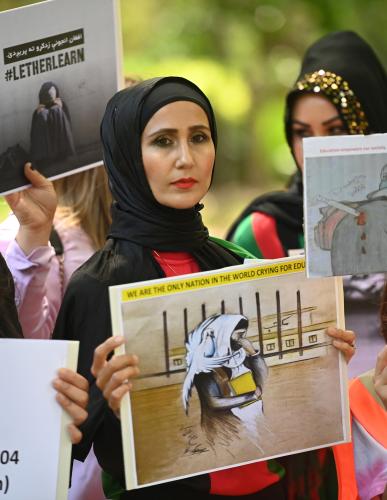
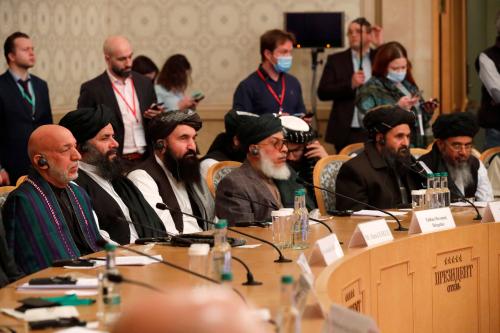
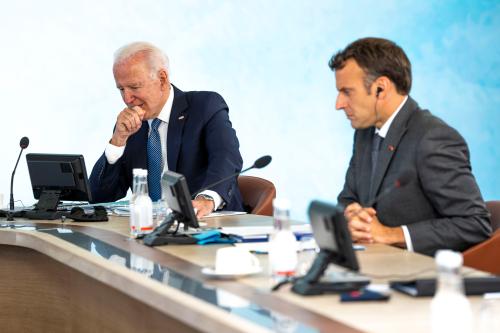
Commentary
What the Biden administration’s narrative on Afghanistan gets wrong
June 7, 2021